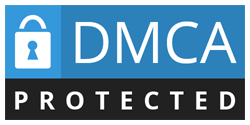State retirement plans are a growing trend across the United States. They aim to help stop the looming retirement crisis by increasing access to savings. Many workers are struggling to save for retirement, particularly younger employees. Almost 50% of Americans have less than $1,000 in savings. Here, we have mentioned 4 ways a state retirement plan can secure your future. Have a look!

Benefits
State retirement plans have emerged as a critical way to help people save for their future. Many workers, significantly younger and low-income workers, don’t have access to a retirement plan offered by their employer.
One of the benefits of state retirement plan is that it allows employees to save money for retirement and gives them more control over their savings. Moreover, they can save more each year and enjoy tax benefits.
The most popular type of state-mandated retirement plan is the 401(k). A 401(k) is a defined contribution plan allowing you to invest your money and receive tax advantages on your contributions.
It is also a good choice for small businesses because it allows them to offer their employees a low-cost option that requires little management. Setting up is straightforward, and you can make contributions through payroll deductions.
Other state-mandated retirement plans include the SEP IRA, SIMPLE IRA, and solo 401(k). The latter allows you to invest in the same investment options as the 401(k), but you can make fewer contributions.
The best way to decide what type of state-sponsored retirement plan is right for you is to consult an expert. They can help you find the best option for your business. They can also offer affordable, customizable retirement plans that satisfy your state’s requirements to secure future.
Also Check: How To Improve Your Investment Portfolio In The Tech Age Easily?
Taxes
State taxes can be a significant source of financial stress for retirees. These can include income tax, sales, and property taxes.
Fortunately, many states offer retirement income exclusions and deferrals that can help you offset the taxes you incur on your Social Security and pension benefits, retirement account distributions, and other sources of retirement income. Some states don’t tax wages, salaries, dividends, or interest.
Others levy income taxes on Social Security benefits, pensions, and distributions from private retirement plans (including IRAs) and out-of-state public annuities.
In addition, some states tax Social Security retirement benefits to the full extent of federal taxes. In contrast, others deduct up to $25,000 per person for qualified pension income and increase this deduction to $35,000 in 2023.
Alaska doesn’t impose state income taxes on any type of income, including Social Security or pension income. But it does levy a high state sales tax rate on all kinds of purchases.
While most states have no state income taxes, some are levied on the income of particular groups of people, such as older people, the military, and teachers. These taxes can be an essential factor in deciding where to retire. Some retirees might even be tempted to relocate to another state for tax-free living. In this case, it’s a good idea to check out the tax rules in the new state before making any final decisions.
Also Check: 6 Smart Retirement Planning Tips You Should Consider

Investments
State retirement plans typically have various investment options available to their members to secure their future. These include target date funds, age-based investment programs, and retirement strategy funds. They may also offer a lifetime income program such as an annuity.
Several factors affect pension fund returns, including stock prices and interest rates. These trends suggest that returns should decline over the next several years.
Over the past decade, a typical state fund that uses net-of-fee reporting earned 8.5%. However, over the same period, funds that performed in the bottom quarter (25th percentile) of net-of-fee reporters made an average 7.75% return.
In addition to pension plan investments, you can add retirement savings to your account through the Deferred Compensation Program (DCP). DCP provides a way for employees to save for their future by contributing to a state-approved account that invests in various funds.
In addition to these statutory and voluntary options, you can contribute to other tax-advantaged accounts like an Individual Retirement Account (IRA) or a Traditional IRA. These accounts can help you build a substantial retirement nest egg and protect your money from high taxes. In addition, you can use these accounts to save for short-term emergencies such as a trip abroad or to buy a vacation home.
Also Check: How To Choose And Find A Retirement Home – Things To Consider Before
Education
If you’re looking for a way to ensure your future is secure, you may want to consider the educational benefits of a state retirement plan. These plans are often funded through payroll deductions, providing a combination of pensions and other retirement savings.
Employers choose the best option for their employees, such as a Roth individual retirement account (IRA).
Educators often have access to both defined-benefit pensions and defined contribution plans. While pension amounts have decreased recently, teachers can save for retirement through these options.
As a teacher, you might also have access to Social Security. However, this benefit will likely cover only some of your living expenses during retirement. Knowing your eligibility and contributing as much as possible is essential.
Talk to a financial advisor about your options if you want to help plan your retirement. They can help you comprehensively analyze your financial situation and help you determine how much you’ll need to save every month. They can also recommend investment options and other strategies to boost your retirement income. Ask for referrals from your employer, other teachers, and state counselors to find an advisor with specific expertise in helping teachers.
Also Check: 5 Reasons Tax Services Are Essential For Business
Image by Alexandra_Koch and Gerd Altmann

